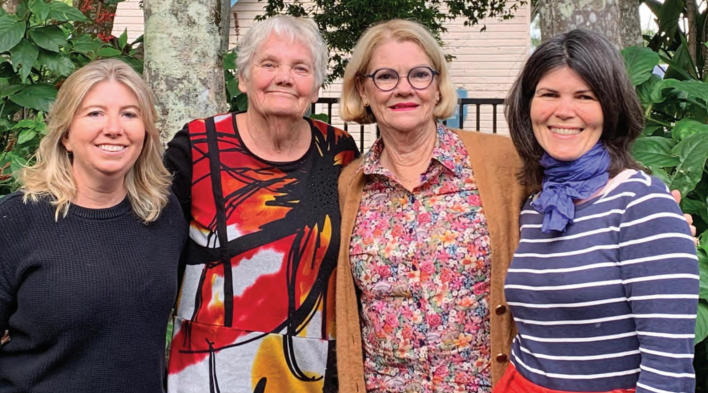Claire McLisky has been the ethics program coordinator at Bangalow Public School in the far north of the state since 2019. Claire recently to the local Bangalow Herald about the value of ethics education.

“I started teaching ethics in 2017, when I signed up in anticipation of my daughter starting kindy. Since then I have taught all four stages and have loved getting to know the school and all the smart, cheeky, funny and thoughtful children who have been in my classes. I’ve been the Bangalow coordinator since 2020 (a difficult year!) and am enjoying building and supporting my team of teachers as they discover the delights and challenges of ethics teaching.
“Ethics at primary school level is important for two reasons. Firstly, it gives students an opportunity to develop skills that are essential in our complex world – such as critical thinking, giving evidence-based reasons for their opinions, being able to discuss and disagree with others respectfully and how to make well-considered ethical decisions.
“Secondly, without the Primary Ethics program, the students who opt out of Religious Education would have to spend a half hour of their school time doing ‘meaningful activities’ in non-scripture, which mostly seems to just mean colouring in or chatting to their friends.
“Of course, some parents prefer for their students to do non-scripture, which is their right, but many more choose to enrol their children in the ethics program.
Ethics at Bangalow Public School is very popular! Around 60 percent of all students opt for ethics.
Claire McLisky
“In early stages (Kindy and Years 1 and 2), the classes focus on being curious and asking questions, with our trained facilitators employing storytelling and games to get the students engaged. Topics include the difference between knowing and guessing something, changing your mind, telling the truth. In later stages (Years 3 and above), students explore more complex ethical questions, with stories, contemporary issues and real-life scenarios forming the basis of their discussions on issues such as how we should treat living things, voting and fairness in our society.
“Primary Ethics has done a lot of research which shows that our teaching method – using a ‘community of inquiry’ approach where students sit in a circle and share their ideas with each other – improves children’s general reasoning skills as well as their ethical reasoning capabilities.
“We would love to welcome some new volunteers to our team. There are so many benefits that come from teaching ethics – from the chance to engage with young people in a meaningful way and feel connected to the local community, to the opportunity to give back, to the glow that comes from having a really good discussion and having our own assumptions challenged.
“We think our ethics education program is brilliant!”